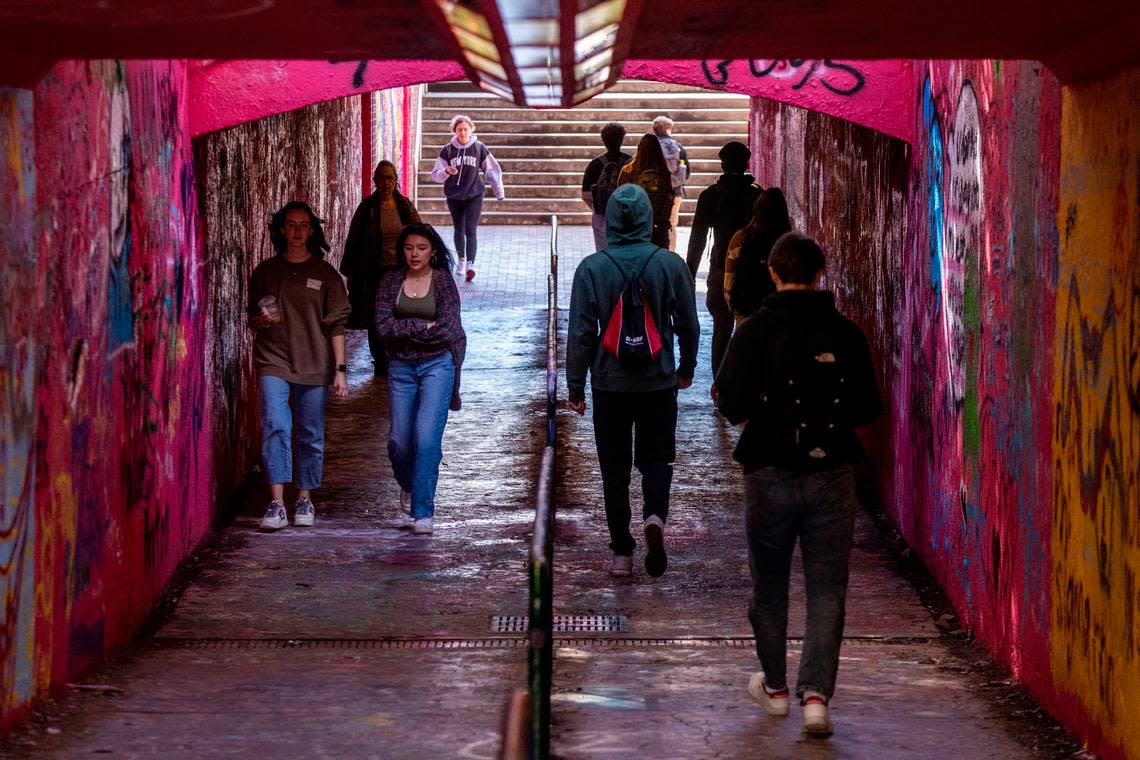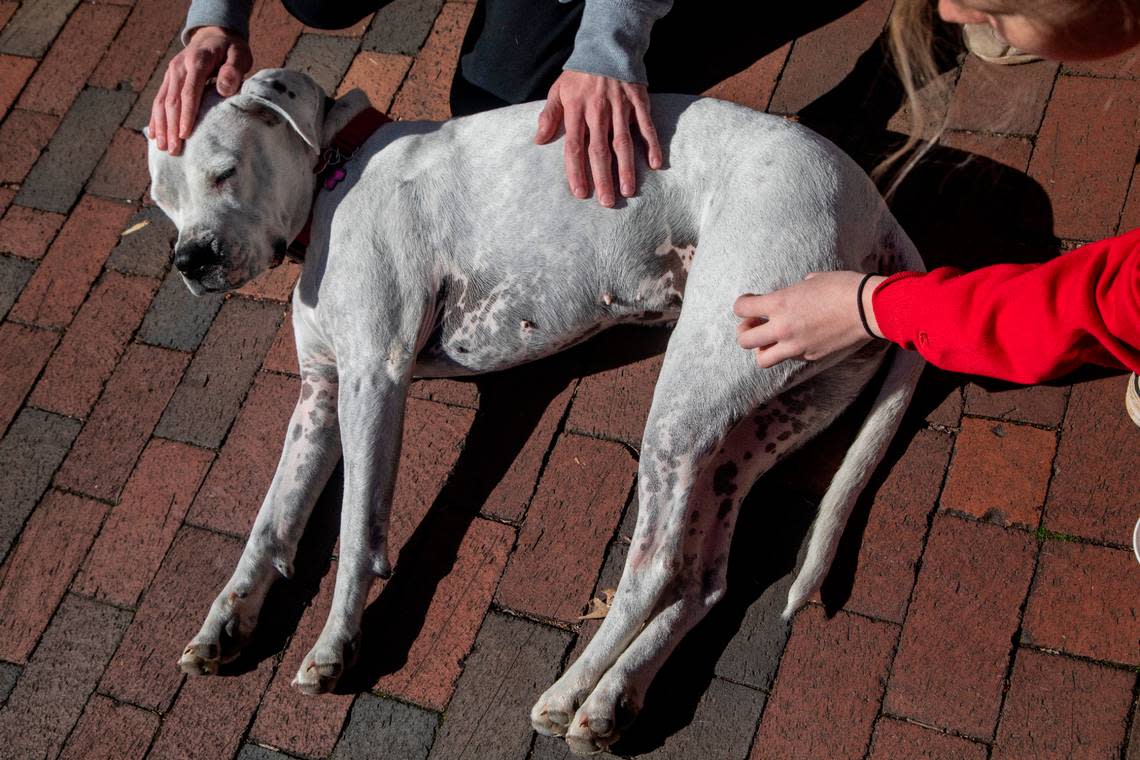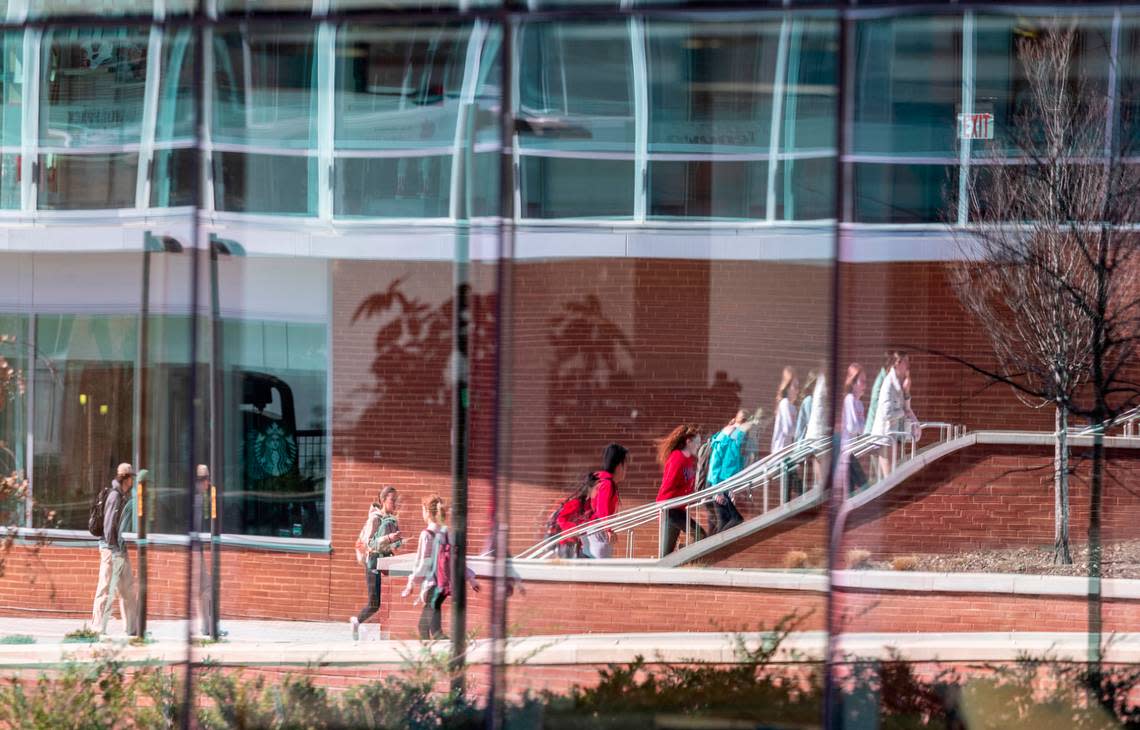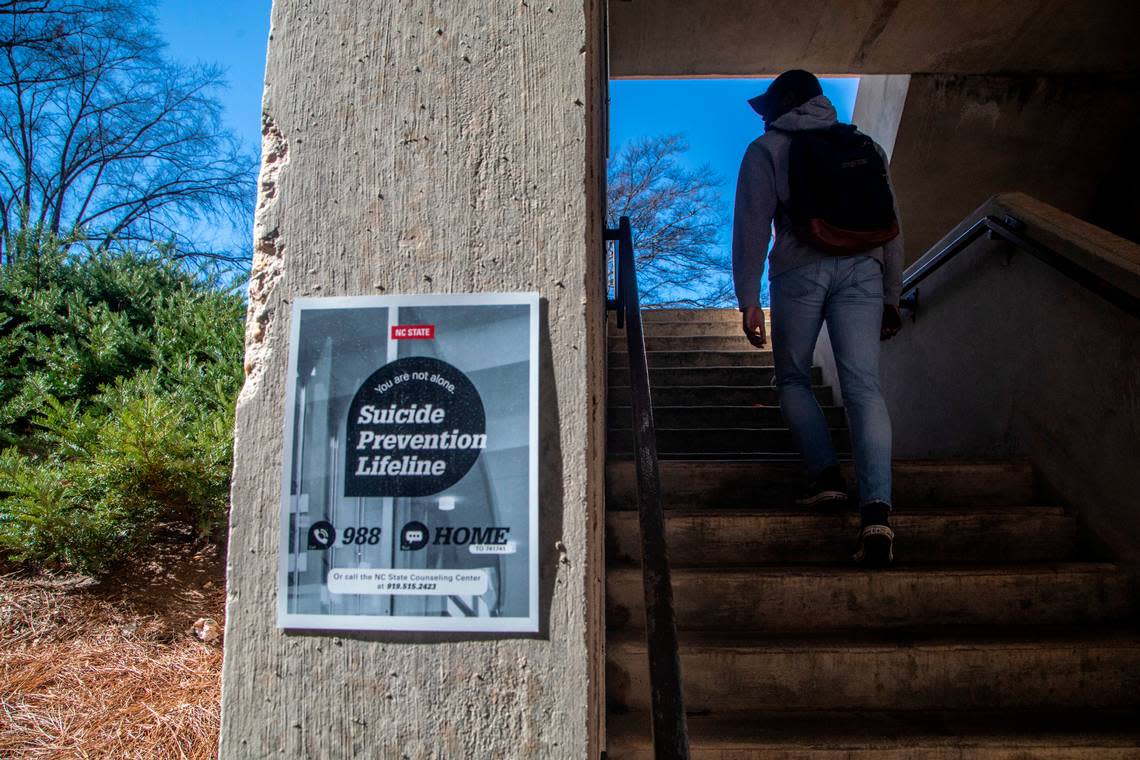After 5th student suicide, NC State searches for understanding and prevention
Editor’s note: This story contains reporting about suicides, a topic that will be disturbing to some readers.
North Carolina State freshman Luke Eriksen was shocked last fall, the first time he received a Wolf Alert notifying him of a student suicide.
But as the school year stretched on, the chilling alerts that one of his peers had taken their life became significantly more routine.
Over the weekend, Eriksen and the rest of the Wolfpack community received another alert: an N.C. State student had died — the fifth student suicide since the start of school this year.
“It just makes me sad, really sad for these kids,” Eriksen said. “I wish I could do something to help.”
Researchers have established that the pandemic exacerbated an already worsening mental health crisis in young adults. But it’s unclear why these tragedies have struck N.C. State this year, said Lisa Zapata, senior associate vice chancellor of academic and student affairs.
“That’s kind of the million dollar question: why is this happening?” she said.
Don’t try to deal with mental health issues alone. Here’s where you can get help in NC
Confronting a complex threat
It’s difficult to tell how the number of deaths by suicide at N.C. State this year compares to that of other universities, said Robert Cramer, a suicide prevention researcher at UNC Charlotte.
There is not a standardized process for reporting these deaths on campuses in North Carolina or nationwide. That said, in his experience, five deaths in one academic year is alarming.
“They’re either keeping really good data and transparent data, or they have a problem,” he said.
N.C. State administrators say they are stumped about why this is happening now or how to prevent future deaths, but they are trying.
“I think that we would all wish there was an easy fix,” Zapata said. “I wish there was something that we could do right this second and solve the problem, and no one else would die.”
The unfortunate reality, she said, is that suicide is an extremely complex problem and the answers aren’t always clear.
According to data from the Centers for Disease Control and Prevention collected in 2021, 37% of high school students reported they experienced poor mental health during the pandemic, and 44% reported they persistently felt sad or hopeless during the past year.
Two years after this data was collected, many of these students are entering or have already entered college age, illuminating the growing mental health concern on campuses across the country.

“Nationally, we remain in the midst of a mental health crisis that is affecting people of all ages and backgrounds. For college students, suicide is the leading cause of death across the U.S. That’s shocking, and it should make us all stop and think,” said NC State Chancellor Randy Woodson in a statement to students on Oct. 10.
Students: We can’t fix this
Unlike at UNC-Chapel Hill, where a spate of student deaths by suicide in 2021 prompted public commemorations and other gatherings, there is little obvious evidence of what N.C. State is going through on campus.
But students approached on campus this week were aware. They feel at a loss for answers on how to respond to an ongoing, mental health crisis for young people on their campus and nationally, they said.
For sophomore psychology major Mila Lopez, the number of student deaths has impacted her own mental health.
“It honestly made me feel depressed last semester, because it (suicide notifications) just kept going and going,” Lopez said, while sitting at a table behind the Talley Student Union. “The first time I thought, ‘okay. This is okay. It’s one person you don’t really know,’ but then it just started to become a theme.”
After the first suicides in the fall, Woodson announced a Nov. 3 Wellness Day – days off from classes where students are encouraged to take a break from academic life and address their mental health. Several programming events take place across campus, including yoga and relaxation groups.
“If wellness days is the temporary answer, the band aid to the bullet wound, that’s fine. But I don’t know what the long-term thing is. And I don’t know if there’s any other schools that have good policies in place,” Lopez said.
The next wellness day, scheduled for Feb. 16, was planned before the most recent student death by suicide.
Campus ramped up outreach
It’s been a tough year on the downtown Raleigh campus. In addition to the suicide deaths, three other students died this academic year. One from a car accident in Johnston County. Two others from what university officials have labeled only “natural causes,” a broad term that can include long-term and sudden illness.
In November, the university established the Student Mental Health Task Force – made of students, faculty and staff – who will take on the challenge of making recommendations to improve student mental health and reduce the risk of more deaths by suicide.
The task force is expected to publish a report this month that will lead to “significant revisions” of N.C. State policies, said Zapata, co-chair of the task force.

That could include changes to mandatory class attendance policies that impact students on a daily basis.
The school has already taken measures to make counseling more widely available to its students.
In December, the campus began offering 12 free teletherapy appointments, citing student concerns about the “significant wait” that often accompanies non-crisis counseling appointments.
Same-day triage appointments are also available through the Counseling Center.
The school also began planning to add “embedded clinicians,” who are stationed in buildings that students frequent, making counseling more readily accessible.
‘Systemic examination and overhaul’
N.C. State exceeds the recommended counselor-to-student ratio, 1 to 1000, that is set by the International Accreditation of Counseling Services. But demand for these services has risen since the pandemic, Zapata said.
“You’ve got this increased demand before the pandemic, the pandemic hits, and now we’ve got all kinds of challenges,” she said.
Improving access to counseling is important in the short term, but addressing the underlying problems that cause distress in the first place is crucial to addressing the issue, said Robert Cramer, a suicide prevention researcher at UNC Charlotte.
“That’s a lot more than just hiring a few more counselors in the counseling center,” he said. “It’s a systematic examination and overhaul.”
In the task force’s listening sessions, N.C. State students have said they struggle with food insecurity, housing insecurity and financial pressures, Zapata said.
She most commonly hears that students are struggling to find a sense of belonging at the large university, she said. This is consistent with research that shows that a lower sense of belonging is strongly associated with depression and suicidal ideation.

Cramer said campuses should take steps to start addressing some of these root problems.
For graduate students, that could mean increasing the minimum stipend pay to reduce financial stress. It could also mean finding meaningful ways to address discrimination, which can cause mental stress in students of color.
Zapata said the task force’s report will delve into those systemic problems.
“The bottom line is we are never going to be able to hire enough clinicians to meet the need,” she said. “If we can really focus on prevention and on some of those components then we get ahead of it.”
‘The system needs to change’
Unlike Lopez and Eriksen, sophomore criminology major Sarah Savage has attempted to get help from N.C. State’s mental health resources in the past, she said.
During her first year of school, Savage reached out to the Counseling Center to start going to therapy for mental health concerns. Due to her insurance status, she could not be treated by N.C. State’s counseling services and was referred to a care provider off campus who accepted her insurance.
Although she said she is very happy with the care she currently receives, the process of being transferred took up valuable time that could have been put toward treatment.
“It’s hard to navigate resources as a young adult,” said Savage, who was also sitting outside the student union this week. “It’s just tough.”

Not only is hard to take care of themselves, it’s impossible to take care of each other.
“(I feel) powerless because there’s nothing as a freshman living in Carroll on the sixth floor I can do about this overarching issue across an entire school with 45,000 kids,” Eriksen said.
If you or someone you are concerned about is at risk, contact the National Suicide Prevention Lifeline by texting or dialing 988. Or call 1-800-273-TALK. The National Alliance of Mental Illness North Carolina also offers virtual support groups and programming across the state.
Don’t try to deal with mental health issues alone. Here’s where you can get help in the Triangle and North Carolina.
